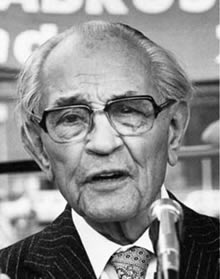
|
Seven Years Later:
Remembering 9/11
For Sunday September 7, 2008
Lectionary
Readings (Revised Common Lectionary, Year A)
Exodus 12:1–14 or Ezekiel 33:7–11
Psalm 149 or Psalm 119:33–40
Romans 13:8–14
Matthew 18:15–20
 |
Osama bin Laden. |
On September 11, 2001, nineteen Al-Qaeda terrorists hijacked four commercial airliners in a coordinated suicide attack. One plane slammed into the North Tower of the WTC, another into the South Tower, a third one plowed into the Pentagon, and a fourth plane that had targeted the US Capitol crashed in rural Pennsylvania after passengers wrestled control from the hijackers. 2,974 people died in the carnage, including 343 firefighters and 60 police officers. 24 people are still missing. Our country will never forget that day, nor should we.
In some ways the terrorist attacks were a uniquely American tragedy. The iconic 110-story World Trade Center epitomized America's economic might. The attacks were also an assault on the whole world, even humanity itself; citizens from 90 countries died that day. Although he first denied any responsibility, on October 30, 2004, Osama bin Laden said that he had directed the attacks.
Why did Al-Qaeda attack America?
At some level, all people are the same. No one can claim to be immune from the dark impulses of hatred, violence, and war. In his book The Most Dangerous Animal (2007), David Livingstone Smith asks why human beings slaughter each other on such a mass scale and with such ferocious cruelty — 200 million people in just the last hundred years. He rejects the explanation that war is a matter of nurture, a learned behavior, or a mere "cultural artifact." Rather, he argues that war is deeply embedded in human nature, that it's innate, and our natural impulse. As such, war is not so much a pathology or aberrant choice, it's "a normal feature of human life." For a similarly dark view, see War is a Force That Gives Us Meaning (2002) by Chris Hedges.
Throughout history, nations, and in this case non-state actors, have justified their wars with all sorts of rationalizations — territorial expansion, retaliation, protection, self-defense, to redress evil, and to spread their economic and political ideology. America is no exception in this regard (see Stephen Kinzer's book Overthrow). The thirty-three page National Security Strategy (2002), for example, praises American democratic capitalism as the "single sustainable model for national success," and "right and true for every person in every society." We intend to export our way of life "to every corner of the globe." The NSS also says that we'll act unilaterally and pre-emptively against any nation that tries to thwart us.
The attackers were partly motivated by their hatred of western values — secular democracy that separates church and state, religious pluralism, freedom of speech, freedom to vote, the privacy of the individual, and toleration of dissent. For Muslim extremists and conservative Americans this tends to be a black-and-white view of the world with no middle ground or ambiguity. Nations are "either for us or against us," Bush famously said. On one side there's an "axis of evil" that wills us harm, and on the other side enlightened people who champion the true, the good, and the just. There are some elements of truth in this view, but I don't find it compelling.
 |
Bush with firefighter. |
Other people point to the consequences of American foreign policy. A 1998 fatwa by Osama bin Laden and others objected not to our values but to three specific "crimes and sins" — our support for the United Nations sanctions against Iraq (1990–2003) that hastened the deaths of a million citizens (UNICEF says that 500,000 children died as a result of the sanctions), our biased support for Israel to the detriment of Palestinians, and the presence of our numerous military bases in their sacred Muslim lands. The fatwa also mentioned America's plundering of Arab resources, support for abusive regimes, and undermining self-determination by dictating policy.
In this view, the 9/11 attacks were a classic case of "blowback." Blowback, says Chalmers Johnson, is "another way of saying that a nation reaps what it sows." What many people "hate" about America, Johnson argues, is our global militarism and predatory economic policies which virtually assure retaliations against us for decades to come. Instead of acting prudently, we have acted with what has become predictable condescension towards other nations and with myopia about the consequences. Our overwhelming and global military-economic threat, exercised with almost no fear of retaliation, is "seeding resentments that are bound to breed attempts at retaliation."
In addition to human nature, politics, history, economics, religion, and culture, should Christians appeal to God's providential intervention to explain the Al-Qaeda attacks? Jerry Falwell infamously construed the 9/11 attacks as divine punishment. He claimed that the wickedness of pagans, abortionists, feminists, gays, lesbians, the ACLU, and People for the American Way were one reason God had punished America. “I point the finger in their face,” said Falwell, “and say, ‘you helped this happen.’” Pat Robertson, a guest on the show, nodded in agreement, saying, “well, I totally concur.” In Falwell's view, America's policies aren't wrong because they're politically imprudent as a matter of practice. Rather, they're morally wrong as a matter of principle because they violate God's standards.
It's easy to dismiss the remarks of Falwell and Robertson as reckless and hateful. But even Abraham Lincoln described the Civil War as God's judgment on America for slavery. What role, if any, did God play in the 9/11 attacks? Angering Muslim extremists with an imprudent foreign policy is bad enough. Angering God himself would be calamitous.
The Hebrew Scriptures unambiguously affirm that Yahweh intervenes not only in the lives of individuals but in the affairs of nations, and that he sometimes judges nations with "disaster upon disaster" (Jeremiah 4:12, 15, 20; Exodus 32:14). Falwell was right that God judges nations, but wrong in the confidence and clarity with which he assigned blame.
Exodus 12 describes the institution of the Jewish feast of Passover that commemorates Israel's liberation from 430 years of bondage to slavery in Egypt. Liberation from oppression is always worthy of celebration. But the writer of Exodus construes Israel's emancipation to include Egypt's subjugation. Today we might say that the oppressed became the new oppressor, except in this instance the writer insists that Hebrew revenge was the very act of God Himself. God will "bring judgment on all the gods of Egypt" (Exodus 12:12). In something like divine infanticide, He will slay the first-born of every Egyptian, from the highest in Pharaoh's house to the lowliest prisoner languishing in a dank dungeon, even including the firstborn of Egyptian livestock. To punctuate his point, the writer adds: "there was loud wailing in Egypt, for there was not a house without someone dead" (Exodus 12:30). In a departing act of humiliation, the Hebrews plundered their Egyptian oppressors.
Or consider the schizophrenic zeal in Psalm 149. The first half of the Psalm describes dancing, singing, music, and praise of God. But the instruments of worship like tambourine and harp give way in the second half of the psalm to weapons of war like swords and shackles:
May the praise of God be in their mouths
and a double-edged sword in their hands,
to inflict vengeance on the nations
and punishment on the peoples,
to bind their kings with fetters,
their nobles with shackles of iron,
to carry out the sentence written against them.
This is the glory of all his saints (Psalm 149:6–9).
I love the anemic understatement in the New Oxford Annotated Study Bible (1991) footnote to Psalm 149: "The dance was evidently of war-like character." Yes, it certainly was. Perhaps the enemies of the Psalmist somehow deserved their humiliation, perhaps there is a mysterious divine providence at work in the rise and fall of nations, or maybe you could read this as the normal but tragic rhetoric of military conquest. Whoever laughed at the notion of poetry as a political act? For the Psalmist it was a very short step from pious praise to religious rage. He glorifies the religiously righteous who brandish the Scriptures in one hand and a sword in the other.
Some well-educated and well-meaning Christian scholars defend a theology of a warrior God who harbors enmity and slays his enemies (see Peter Leithart, 1&2 Kings, 2006). I prefer the view of Daniel Berrigan (The Kings and Their Gods, 2008) who suggests that Psalm 149 might best be read as how the writer saw himself and his nation, and how he (wrongly) thought that God saw his "enemies." I'm uncomfortable with linking divine judgment and national disaster, whether for America or for any nation. It's one thing to affirm that God acts in the history of nations, but quite another to claim to know exactly how, when, where, or why.
Every nation is a mix of both good and evil. A nation's ordinary citizens often hold opinions far removed from the megalomania of its political leaders. Jesus warned against linking human tragedy and divine judgment (Luke 13:1–5). Isaiah reminds us that the ways of an infinite God transcend the minds of finite humans (Isaiah 55:8). In his review of the book God's Judgments; Interpreting History and the Christian Faith (2007) by Steven Keillor, Brad Gregory of Notre Dame offers wise counsel: "Claims of divine providence and divine judgment are at a minimum empirically unverifiable, if not also naive, irresponsible, and dangerous."
We shouldn't wish divine judgment on anyone or any nation; we should wish them God's shalom. When you imagine that God hates all the people you hate, then you can be sure you've created him in your own image. No, said the German pastor Martin Niemoeller who was imprisoned by Hitler for eight years (1937–1945), "It took me a long time to learn that God is not the enemy of my enemies; he's not even the enemy of his own enemies."
 |
Martin Niemoller. |
What we should wish for every people and nation comes from this week's epistle. Paul borrows a passage from the Hebrew Old Testament to instruct the earliest followers of Jesus: "Love your neighbor as yourself" (Romans 13:9 = Leviticus 19:18). The only debt we should carry, he says, is the never-ending debt to "love your fellow human being." Loving your neighbor fulfills any and every other divine command, for genuine love "does no harm to its neighbor."
The Exodus story and the prophet Ezekiel both make a final and decisive point: divine judgment is not pre-determined. God's will is not some irresistible and implacable destiny, as if he was a puppeteer pulling strings. He "takes no pleasure in the death of the wicked, but rather that they turn from their ways and live" (Ezekiel 33:11). Instead, history is open and fluid, a mysterious interplay of divine mercy and human choices. Israel was idolatrous, but Moses "sought the favor of the Lord his God." As a result, "the Lord relented and did not bring on his people the disaster he had threatened" (Exodus 32:11, 14). Avoiding national disaster is an outcome for which we can all pray, all the time, for all the nations of the world. I pray that despite the pain and horror that our country experienced on September 11, 2001, our nation and its leaders will adopt a similar posture toward our global neighbors.
Image credits: (1) Wikipedia.org; (2) TechnoTouch.net; and (3) Martin-Niemöller-Schule Wiesbaden.





